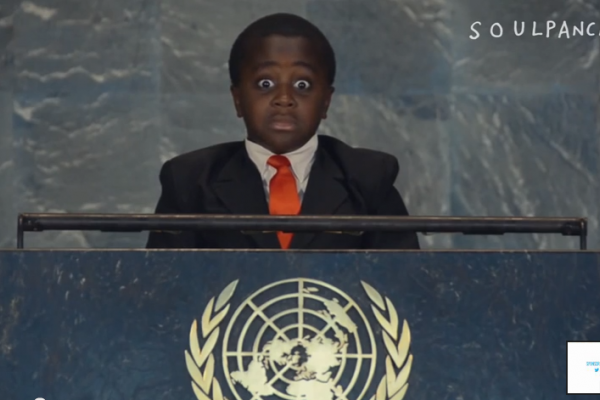Egypt now teeters on the edge of an abyss. Sen. John McCain (R-Ariz.), who was in Cairo earlier this month at President Obama’s request to mediate between the military-backed interim government and supporters of ousted President Mohammed Morsi, told CBS News: “Oh my God, I didn’t know it was this bad. These folks are just days or weeks away from all-out bloodshed.”
The widely anticipated military crackdown against pro-Morsi demonstrators began last week, so we’d better brace for the blow-back.
The rising specter of repression in Egypt is difficult to watch for two reasons. First, it confirms that the counterrevolution is successfully restoring the deep state — the vast security apparatus upon which military autocracy in Egypt has been based since Gamal Abdel Nasser’s rule in the 1950s, effectively extinguishing any hope of transition to democracy. Second, the violent crackdown evokes bad memories of earlier efforts by Egypt’s military strongmen to crush their Islamist opposition.
We know neither her name nor the location from which she comes. All we know is that she was “a woman with a spirit that had crippled her for eighteen years,” and that, “[s]he was bent over and was quite unable to stand up straight.” (Lk. 13:11) We don’t know from the text exactly what causes this spirit to lash out at this woman. We do know, though, the power of this spirit is to slowly and deliberately destroy this woman’s life. Whether this spirit manifesting its wicked power in this way is a result of the woman’s sinfulness or was it simply the way she was born we do not know. So weighted down by its power is she that she can’t “stand up straight.”
All we know is that bent over, exhausted, worn, and arid from the despair that comes from the power of this spirit, pushed to the margins of society, and dead inside, this woman comes in from the heat of the day to seek shelter in the synagogue.
They are nameless when they arrive at Magdalene. Seeking shelter – relief – from the power of the spirit whose work it had been to destroy them through drugs and prostitution, they come completely exhausted and desperate. Like the woman in the text, these women of Magdalene live on the edge between death and life. Living in the shadows, under the oppressive weight of the spirit whose power it had been to press the life right out of them, these women, like the woman in this text from Luke, “can’t stand up straight.”
Nelson Mandela, the first democratically elected president of South Africa, has been in the hospital for more than two months. Nearly 20 years after his election South Africa remains, despite myriad troubles, a stable, multiracial, and democratic country.
Mohamed Morsi, the first democratically elected president of Egypt after the world-changing protests in Tahrir Square led to the resignation of former president Hosni Mubarak, has been out of office, by way of military coup, for more than one month. He is now being held by the military under house arrest at an undisclosed location, and the mere mention of his name divides the citizens of Egypt. This division has led to the death of more than five hundred Morsi supporters this week alone. In response, members of the Muslim Brotherhood and Morsi supporters have attacked dozens of Coptic Christian Churches.
On this World Humanitarian Day, Kid President thinks the world needs more hugs. What about you? Join SoulPancake + the United Nations as they host a Google hangout from 4 p.m. to 7 p.m. PST today to chat about what the world needs more of.
I just got back a few days ago from a campsite outside of Asheville, N.C., the site of the third annual Wild Goose Festival. For those who are unfamiliar with the event, imagine and old-fashioned days-long outdoor revival, combined with Bonaroo and a traveling circus. For several days, authors, activists, artisans, musicians, and seekers converge to engage in spontaneous community, share ideas and to inspire one another.
It's not every day that you can walk by a makeshift tent and listen to Phyllis Tickle succinctly summarize the history of Christendom in 45 minutes, and then wander over and pick up a vegetarian pita sandwich while on your way to hear the Indigo Girls perform. Impassioned conversations emerge all on your walk about everything from child trafficking to the state of the institutional church in the 21st century. And you're only momentarily distracted by the guy on stilts, wearing a hat covered in goose feathers who wanders by for no apparent reason.
Welcome to Wild Goose.
This year marks the 150th anniversary of both the issuing of Emancipation Proclamation and the battle of Gettysburg. This month marks the 50th anniversary of the historic March on Washington and Dr. Martin Luther King, Jr.’s “I Have a Dream” speech. All three moments marked major turning points in the fundamental American struggle to actualize the divine dream of life, liberty, and equality for all. That dream has been especially powerful through the struggle for African-American freedom.
From a biblical perspective, American slavery and Jim Crow segregation not only subjugated the body. For about 300 years, from Virginia’s first race-based slave laws in the 1660s to the passage of the Voting Rights Act in 1965, the legal binding of black hands, feet, and mouths also bound spirits and souls. Both slavery and Jim Crow laws denied the dignity of human beings made in the image of God and forbade them from obeying God’s command to exercise Genesis 1:28 “dominion” — in today’s terms, human agency.
So, the Emancipation Proclamation and passage of the 13th, 14th, and 15th Amendments were cause for jubilee worship in black churches and among other abolitionists. Likewise when the Civil Rights Act passed in 1964 and the Voting Rights Act passed in 1965, churches across the nation erupted again in worshipful jubilee.
Now, nearly 50 years after the second American jubilee, African Americans are being stripped of dignity and constitutionally protected freedoms like we have not seen since Jim Crow.
I love Fun.. I especially love the wacky period at the end of the band’s name. But my Word doc has the green squiggly line under the two periods of that first sentence. I hate that green squiggly line — it’s not fun. It’s there to tell me that I have bad grammar. Not this time, Word doc! I shall right click and ignore you!
Fun.’s (okay, now there’s a red line! Once again I shall ignore…) Some Nights is full of philosophical and spiritual gold. It asks questions about identity, friendship, violence, and the purpose of life. But, for me, these words stand out the most:
My heart is breaking for my sister and the con that she calls “love”
When I look into my nephew’s eyes…
Man, you wouldn’t believe the most amazing things that can come from…
Some terrible nights…ah…






